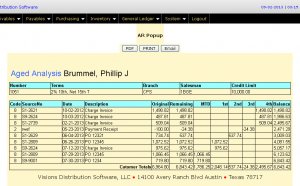
Financial Accounting Definitions
Financial accounting is a system that accumulates, processes and reports information about an entity's performance (i.e. profit or loss), its financial position (i.e. assets, liabilities and shareholders' equity) and changes in financial position.
Every entity, whether for-profit or not-for-profit, aims at creating maximum value for its stakeholders. The goal of maximum value addition is best achieved when there is a mechanism to monitor the management and the board of directors. Financial accounting helps in such monitoring by providing relevant, reliable and timely information to the stakeholders.
Inputs to a financial accounting system include business transactions which are supported by source documents, such as invoices, board resolutions, management memos, etc. These inputs are processed using generally accepted accounting principles (GAAP). The processed information is reported through standardized financial statements.
The most basic objective of financial accounting is preparation of general purpose financial statements, which are financial statements meant for use by stakeholders external to the entity, who do not have any other means of getting such information, i.e. people other than the management. These stakeholders include:
- Investors and Financial Analysts: Investors need the information to estimate the instrinsic value of the entity and to decide whether to buy, hold or sell the entity's shares. Equity research analysts use financial statements to conduct their research on earnings expectations and price targets.
- Employee groups: Employees and their representative groups are interested in information about the solvency and profitability of their employers to decide about their careers, assess their bargaining power and set a target wage for themselves.
- Lenders: Lenders are interested in information that enables them to determine whether their loans and the interest earned on them will be paid when due.
- Suppliers and other trade creditors: Suppliers and other creditors are interested in information that enables them to determine whether amounts owing to them will be paid when due and whether the demand from the company is going to increase, decrease or stay constant.
- Customers: Customers want to know whether their supplier is going to continue as an entity, especially when they have a long-term involvement with that supplier. For example, Apple is interested in long-term viability of Intel because Apple uses Intel processors in its computers and if Intel ceases operations at once, Apple will suffer difficulties in meeting its own demand and will loose revenue.
- Governments and their agencies: Governments and their agencies are interested in financial accounting information for a range of purposes. For example, the tax collecting authorities, such as IRS in USA, are interested in calculating taxable income of the tax-paying entities and finding their tax payable. Antitrust authorities, such as Federal Trade Commission, are interested in finding out whether an entity is engaged in monopolization. The governments themselves are interested in efficient allocation of resources and they need financial accounting information of different sectors and industries to decide on federal and state budget allocation, etc. The bureaus of statistics are interested in calculating national income, employment and other measures.
- Public: the public is interested in an entity's contribution towards the communities in which it operates, its corporate social responsibility updates, its environmental track record, etc.
YOU MIGHT ALSO LIKE



Share this Post
Related posts
Financial Accounting definition PDF
In financial accounting, a liability is defined as the future sacrifices of economic benefits that the entity is obliged…
Read MoreFinancial Accounting conventions
The most commonly encountered convention is the historical cost convention . This requires transactions to be recorded at…
Read More










